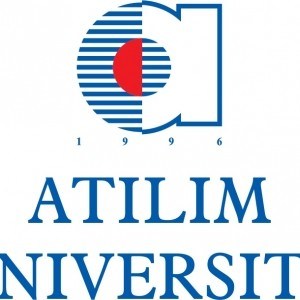The Bachelor of Engineering in Electronic and Computer Engineering at Griffith University offers a comprehensive and rigorous program designed to prepare students for a dynamic and evolving technological landscape. This degree provides students with a solid foundation in electrical and electronic engineering principles, combined with in-depth knowledge of computer systems, software development, and digital design. The curriculum emphasizes the development of practical skills through hands-on laboratory work, project-based learning, and industry placements, ensuring graduates are well-equipped to meet current and future engineering challenges.
Students will explore core areas such as circuit analysis, microprocessors, embedded systems, signal processing, telecommunications, and network systems. Additionally, the program covers emerging fields like Internet of Things (IoT), cybersecurity, and artificial intelligence, reflecting Griffith University's commitment to innovative and future-oriented education. The interdisciplinary approach enables students to understand how electronic components and computer systems interact within complex systems, fostering problem-solving abilities and critical thinking.
Throughout the program, students will also gain expertise in digital hardware design, software engineering, and systems integration, preparing them for roles across various sectors including telecommunications, electronics manufacturing, information technology, and automation industries. The program encourages collaborative projects, fostering teamwork and communication skills essential for professional success.
Griffith University’s state-of-the-art laboratories and dedicated research centers provide an ideal environment for experiential learning. Industry partnerships and placement opportunities with leading companies enable students to gain real-world experience, enhancing their employability upon graduation. The degree also offers pathways to postgraduate study and research in advanced electronic and computer engineering domains.
Graduates of the Bachelor of Engineering in Electronic and Computer Engineering will be equipped with the technical expertise, innovative mindset, and professional skills necessary to contribute effectively to technological advancements and engineering solutions. They will be prepared to pursue careers in designing and developing electronic systems, network infrastructure, embedded devices, and software applications, or to engage in research and development activities that push the boundaries of electronic and computer technologies.
Griffith University grants credit and recognition of prior learning which may relate to prior formal learning or earlier casual and non-formal learning. For more information, please visit the following internet site:https://www.griffith.edu.au/apply/credit-transfer Charge transferGriffith's innovative Credit Precedent Database allows you to learn which credit conclusions are made before. All these precedents will provide you with a sense of what you can expect.https://app.griffith.edu.au/credit-precedent/credit_result.php? Ngpc=5649&-SortField=Connected%20Institutionpercent 20Name&-noresultserror=error.html&-search View credit precedents for this particular app
Program requirements for the Bachelor of Engineering (Honours) in Electronic and Computer Engineering at Griffith University typically include completing a specified set of core courses in electronics, computer engineering, mathematics, and physics, along with elective units that allow specialization in areas such as embedded systems, digital communications, and robotics. Students must meet the university's English language proficiency standards, which generally involve achieving a certain score in tests like IELTS or TOEFL. A minimum GPA is often required for entry into honors or advanced coursework. The program may require students to undertake a capstone project or industry placement to demonstrate practical skills and applied engineering knowledge. Prerequisites usually include studies in mathematics (calculus, algebra) and physics at the high school level or equivalent. For international students, additional documentation such as certified transcripts and proof of English proficiency are necessary for admission. The program is designed to develop competencies in designing, analyzing, and maintaining electronic and computer systems, preparing graduates for careers in sectors such as telecommunications, robotics, embedded electronics, and computing technologies. Students are encouraged to participate in internships or cooperative education programs to gain real-world experience, which may be a required component for graduation. The curriculum emphasizes hands-on laboratory work, teamwork, problem-solving, and adherence to engineering standards and ethics. Overall, the program aims to produce well-rounded engineering professionals equipped with technical expertise, innovative thinking, and professional skills necessary for the rapidly evolving electronic and computer industries.
The Electronic and Computer Engineering program at Griffith University offers a range of financial options to support students throughout their studies. Domestic students can take advantage of government-supported financial assistance, including the FEE-HELP scheme, which allows eligible students to defer tuition fees and pay them back over time through the Australian taxation system. This scheme significantly reduces the immediate financial burden, making higher education more accessible. Additionally, Griffith University provides scholarships and bursaries specifically tailored to engineering students, recognizing academic excellence, financial need, and diverse backgrounds. These scholarships can cover partial or full tuition fees and sometimes include additional funds for living expenses, books, and equipment.
International students enrolling in the program are generally responsible for paying tuition fees upfront or through a payment plan approved by the university. Griffith University offers various payment options, including installment plans that spread the cost over the duration of the program, making it easier to manage finances. International students may also be eligible for scholarships based on academic achievement or country of origin, which can significantly reduce the overall cost of study.
Students are encouraged to explore external funding options such as scholarships from government agencies, industry partners, and private foundations, many of which support students pursuing engineering disciplines. The university's financial services team provides comprehensive guidance on budgeting, loan options, and financial planning, ensuring students can make informed decisions. Costs associated with the program include tuition fees, Student Service and Amenities Fees, which support campus facilities and student services, as well as costs for textbooks, supplies, and living expenses. The university also offers part-time work opportunities and internships to help students gain practical experience and supplement their income during their studies. Overall, Griffith University aims to make electronic and computer engineering education accessible by providing a variety of financial assistance programs and resources to support student success.
The Bachelor of Engineering (Honours) in Electronic and Computer Engineering at Griffith University offers students a comprehensive education in the fields of electronic systems, computer hardware, software development, and embedded systems. This program is designed to equip graduates with the technical skills and theoretical knowledge necessary to innovate and excel in a rapidly evolving technological landscape. The curriculum includes core courses in electronic circuit design, digital systems, telecommunications, microprocessors, and computer architecture. Students also have the opportunity to develop programming skills in languages such as C, C++, and Python, and to undertake practical projects that integrate hardware and software solutions. The program emphasizes experiential learning through laboratories, industry placements, and capstone projects, fostering real-world problem-solving abilities. Graduates can pursue careers in areas such as embedded system design, network administration, cybersecurity, telecommunications, and technology consulting. The program is accredited by relevant engineering bodies, ensuring that graduates meet national and international standards for engineering professionals. Students benefit from access to state-of-the-art laboratories and facilities, expert faculty, and industry partnerships that facilitate internships and employment opportunities. The program typically spans four years for full-time students, providing a balanced combination of theoretical coursework, practical skills, and research experience. Griffith University's vibrant campus environment, combined with flexible study options including online learning components, allows students to tailor their education to their career aspirations and personal circumstances. Post-graduation, alumni are well-prepared for further study or to enter the workforce in diverse technology-driven roles. The program also provides pathways for students interested in research careers or pursuing postgraduate studies such as a Master's or PhD in related fields. Overall, Griffith University's Bachelor of Engineering (Honours) in Electronic and Computer Engineering prepares students for innovative roles in industry, research, and technological development, fostering lifelong skills and a strong professional network in the engineering sector.











